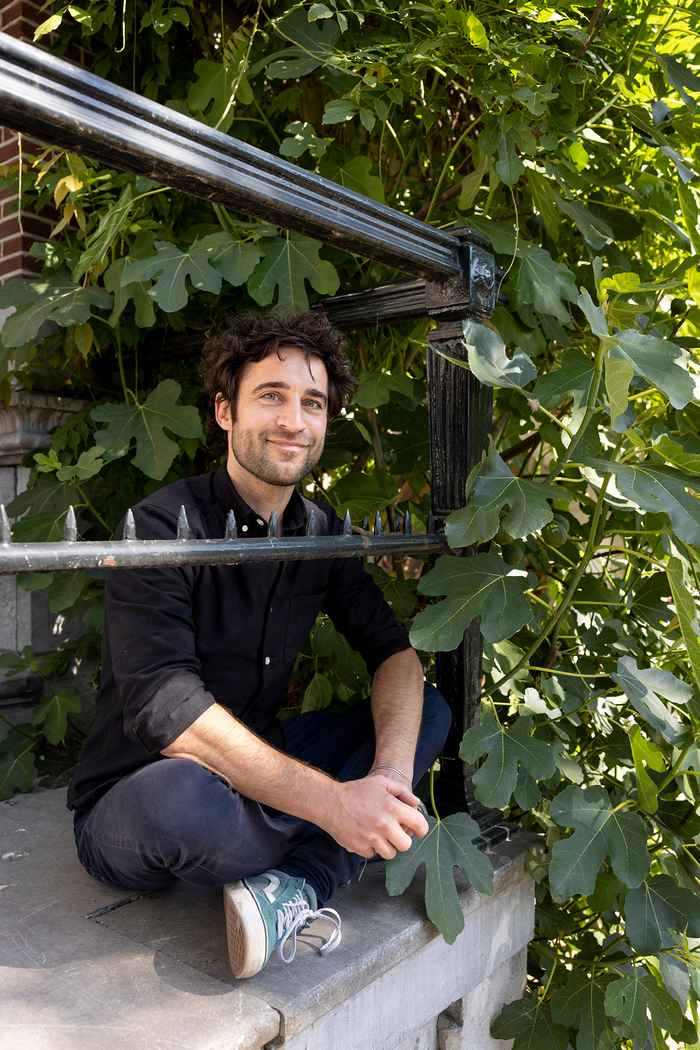The roots of conspiracy theories
29 June 2022

‘A lot of attention has been devoted to conspiracy theories recently’, says Noordenbos. ‘However, a lot of the research is conducted by social psychologists. The social psychology research that makes the news is about the percentage of the population that believes those theories and about the factors that make certain groups in the population receptive to that belief. One thing that is ignored, however, are the cultural forms in which these theories reach us, which can make the notion of “belief” extremely difficult.’
‘I was always interested in conspiracy theories – initially on the basis of literature, but later also based on different forms of popular culture, such as YouTube and internet memes, and also speeches by Putin and Trump. Gradually, my attention increasingly expanded to how conspiracy theories and conspiracy logic was deployed politically and, in particular, the role culture plays therein.’
Identity crisis
Noordenbos was trained as a classical Slavist specialising in Russian literature, but he has always been occupied with popular culture and how that relates to large social and political issues. One of his focuses of interest is Russia compared to other superpowers. ‘Many burning political, social and philosophical issues were already brought up in Russian literature in the 19th century. There was very strict censorship in the Russian Tsardom’, he says. ‘In the midst thereof, literature turned out to be an excellent platform through which writers and thinkers could bring up sensitive issues, for example by means of metaphorical language. That emotional charge is inherent to Russian literature; it makes no sense to view this as something purely aesthetic.
What do you write if everything is allowed all of a sudden?
‘With the collapse of the Soviet Union, a collective identity crisis arose. Censorship disappeared and you no longer had to propagate the socialist ideology. It led to a crisis among writers, because what do you write if everything is allowed all of a sudden? On the one hand, this gives rise to writers who only write for money, while on the other hand writers emerge who put themselves forward as guides to the masses: how should we live, which direction should we take? It is striking that at the beginning of the 90s people cast off the political ideologies en masse, but by the end of the decade – and especially in the Putin era – the role of guide was reclaimed by a number of writers.’
Playing
Such a movement is all about finding a new identity, explains Noordenbos. ‘I am particularly interested in radical right-wing and neo-imperialist writers, who already said from the early Putin period that Russia is nothing without empire, and who felt called upon to sketch that empire as a point on the horizon.
One question that the researcher asks in this regard is the extent to which the writers actually stand behind their reactionary and restorative ideals, and to what extent they are merely playing with radical ideology. ‘The attraction that playing with this common history holds for the general public is remarkable.’
For real
‘That arouses an important question, namely the extent to which conspiracy theories are for real’, says Noordenbos. Take an internet meme, for example, which depicts a conspiracy theory in a witty way. That meme is not isolated, but one in a series of other memes sharing the same theme. Does the creator, or person sharing, believe in the conspiracy theory, or did they simply enjoy interacting and playing with the other memes?’
‘Expressing such a belief in percentages is, in my opinion, an enormous simplification of the way in which people relate to conspiracy theories, because it ignores the fun and irony associated with editing the visual material. That is fundamentally different than the way in which leaders use culture in some cases to create a breeding ground for conspiracy thinking.’
The question is whether you can research conspiracy theories without making a value judgement.
‘There is an enormous amount of variety, therefore, in terms of the way in which conspiracy theories reach us. That is the basis of the research: the idea that you cannot talk about conspiracy theories without addressing the cultural mediations thereof. Conspiracy culture and the effect thereof on society can only be understood actually if you look at the types of narratives that the theory consists of, where they come from and how they interact with each other. Conspiracy thinking in that sense is a practice; it is continuously evolving; it is variable and is constantly expressing itself in new ways.’
No value judgement
‘The danger with such research lies in the fact that by naming something a conspiracy theory, you profess to knowing the truth. The label ‘conspiracy theory’ is often used to say: this is a bizarre idea and it is not true. There is a normative element to the term’, explains Noordenbos. ‘Finding out what is invented in these times – with the role that Russia is currently playing – seems impossible.’
‘The question is whether you can research conspiracy theories without making a value judgement: whether you can describe the logic of conspiracy thinking from an agnostic stance and therefore remain open to whether or not something happened; or on the basis of a feeling of responsibility state: this theory is complete nonsense! – that is a field of tension. It can be difficult to maintain distance; you can come across theories that affect you personally. It has never been my goal to demonstrate the truth about something. That’s not the point; the point is to research how conspiracy theories work and how people are sucked in by them.’